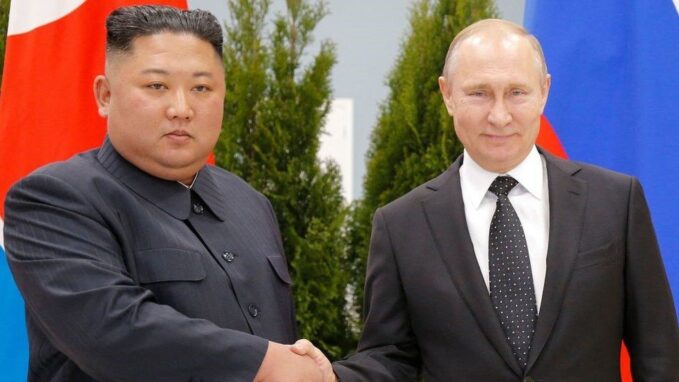
Kim Jong-un is reportedly planning a visit to Russia this month, where he will meet with Vladimir Putin to discuss potential weapon supplies for the war in Ukraine. While the exact details of the meeting remain unclear, it is expected to take place in Vladivostok, given its proximity to North Korea.
Notably, Kim’s journey to Russia’s Pacific coast will be by armored train, as reported by military intelligence and first covered by the New York Times. The Eastern Economic Forum, scheduled from September 10 to 13, will provide the backdrop for their meeting, as both leaders are set to attend. Kim also plans to visit Pier 33, where naval ships from Russia’s Pacific fleet are docked.
This meeting comes at a crucial juncture as Kim and Putin aim to bolster military and economic cooperation to counter their growing international isolation due to Russia’s invasion of Ukraine and North Korea’s ballistic missile and nuclear weapons programs. Putin seeks North Korean artillery shells and antitank missiles, while Kim hopes for technological exchanges, including satellite technology and nuclear-powered submarines.
Meanwhile, North Korea’s failed attempts at space launches have fueled concerns. Kim is also seeking food aid amid reports of chronic shortages and malnutrition among North Korean children.
Speculation is rife that Russia has proposed joint naval exercises with North Korea, further complicating the geopolitical landscape.
The U.S. National Security Council spokesperson, Adrienne Watson, noted recent visits by Russian Defence Minister Sergei Shoigu to North Korea, indicating discussions on acquiring additional munitions for the Ukrainian conflict. The U.S. is urging North Korea to cease its arms negotiations with Russia, emphasizing prior commitments to abstain from arms sales to Russia.
The international community, including the U.S., UK, South Korea, and Japan, has voiced concerns about potential arms deals between North Korea and Russia, which could violate UN Security Council resolutions. As diplomatic discussions unfold, the situation remains fluid, raising questions about its broader implications for regional and global stability.










Leave a Reply